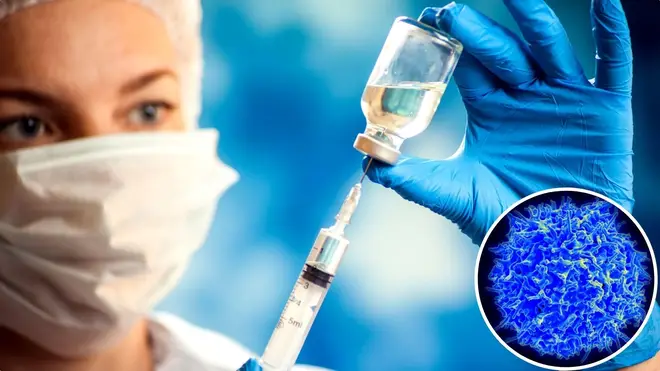
Shelagh Fogarty 1pm - 4pm
23 November 2021, 20:40

A new Covid-19 vaccine tailored towards the creation of T-cells produces a better immune response than the jabs currently being used, trial data shows.
The CoVac-1 jab, which is being developed at the University of Tubingen in Germany, has successfully undergone its first human trial.
Both antibodies and the T-cells are factors in the body's immune response to a virus.
READ MORE: Christmas shoppers should take Covid test before hitting the high street, Govt says
READ MORE: Vaccine passports will not be extended to more venues in Scotland
The body's immediate response is driven by antibodies, while the T-cells take longer to react but respond for longer and are key to longer-lasting protection.
This is because while antibody levels fall over time, T-cells can remain in the bloodstream for a number of years.
The CoVac-1 jab was shown to produce a strong T-cell response in all 36 of its Phase 1 trial participants.

Nadhim Zahawi disagrees with mandatory Covid jabs
It could be especially useful for people with weaker immune systems, for example transplant recipients or cancer patients, for whom the current vaccines do not work quite as well.
The researchers also said the T-cell response was unaffected by current new variants.
They added: "Together, CoVac-1 showed a favourable safety profile and induced broad, potent and VOC-independent T- cell responses, supporting the presently ongoing evaluation in a phase II trial for patients with B cell/antibody deficiency."
It comes as the boss of Astrazeneca argued the current high rates of hospitalisation in mainland Europe could be down to the rejection of his vaccine by countries like France, Germany and Italy, pointing to the fact that the vaccine developed by his company "has been shown to stimulate T-cells to a higher degree in older people".